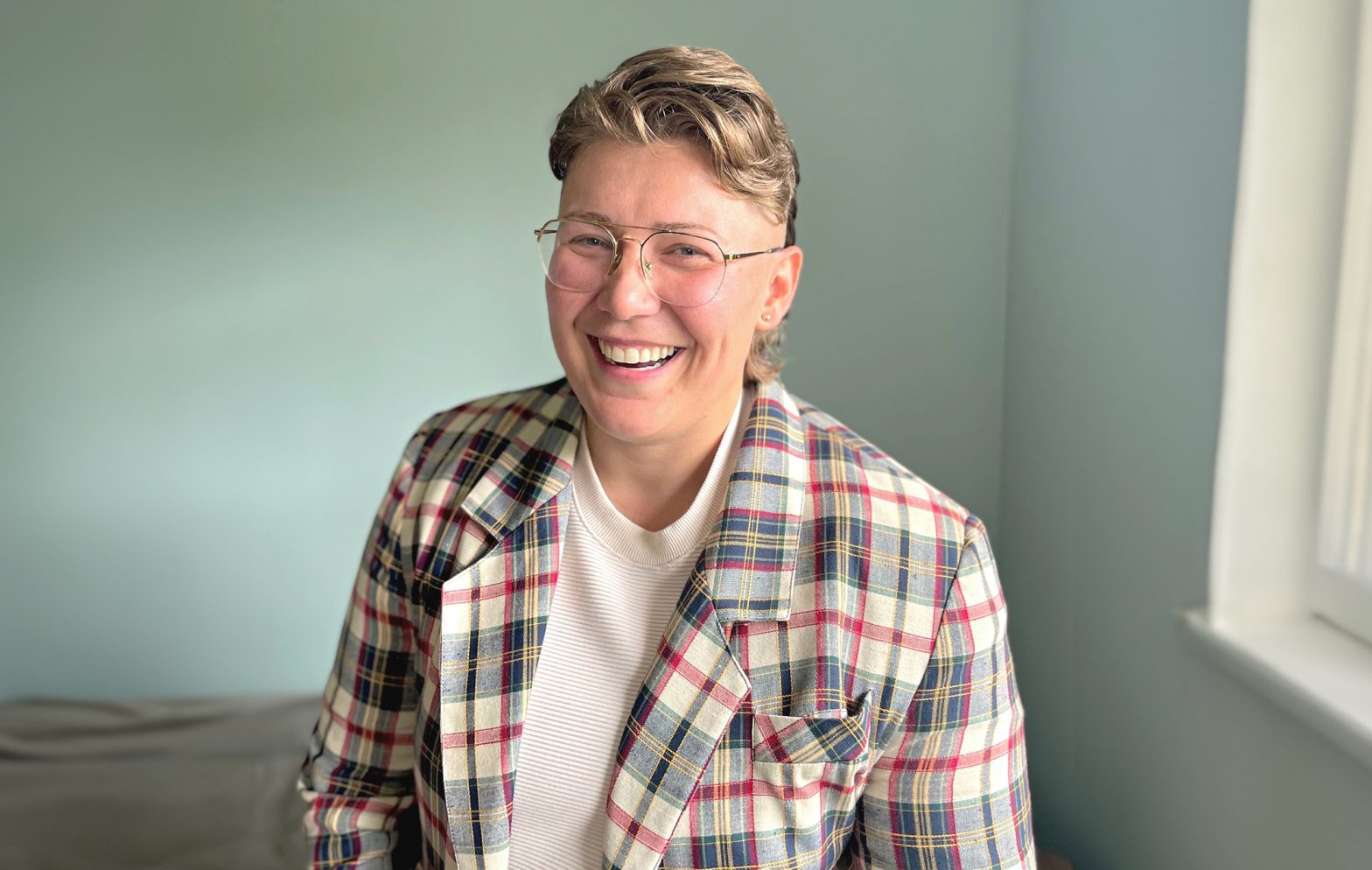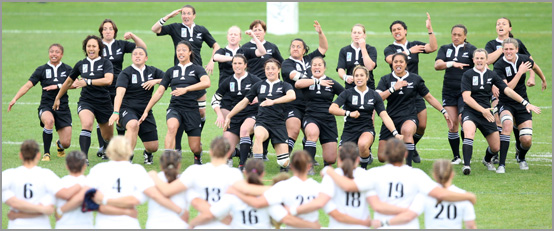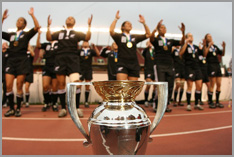Playing Mum and rugby
In the most in-depth look ever as to what it's like to play rugby while being a Mum and the reality of returning to rugby after giving birth, Alice Soper speaks to a range of leading players who have been there and done it.
Published by Alice Soper , May 7, 2024
20 minutes read
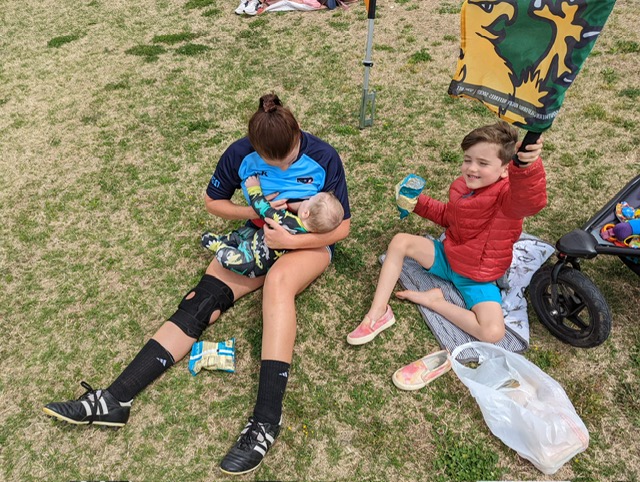
In my experience of rugby, there has been a Mum on nearly every team I have played in.
I have seen buggies parked outside changing rooms and women breastfeeding at halftime. I know that certain players will be late to warm up because their kid’s game is scheduled right beforehand. We know that coaches and managers must also be babysitters when they arrive.
We will give the older kids responsibilities within our set up, like running halfback in our drills or the tee for our kickers. We know the aftermatch is as much about feeding our kids as it is about hosting our visitors.
We understand this here in the grassroots of women's rugby in Aotearoa, that our mums and their kids are the heart of our teams and that we bend to shape ourselves around their needs. This design is reflective of those that built our game so there is no need to retrofit.
This is, of course, Aotearoa’s history. Other countries had their pathways into the game marched through university campuses, which meant Mums didn’t feature as heavily and so there is still a level of novelty and at times, ignorance, attached to their inclusion.
High performance spaces meanwhile were almost universally ill-prepared for our rugby Mums.
From the men’s programmes that informed their structure, to the limited sports science used to guide their practice, until very recently, Mums were invisible or worse, actively cut for daring to get pregnant.
The good news is that this is changing. The bad news is, we are heralding this change with a focus on remarkable individual achievement rather than the required systemic shifts.
To understand the way forward, the easiest path to tread is in the footsteps of our game’s guinea pigs.
The lessons of their experiences highlight how far we have come and where it is we still need our sport to go. These mums are everywhere in our game, so I assembled a panel from around the globe and from the grassroots up to share their perspectives.
______________________________
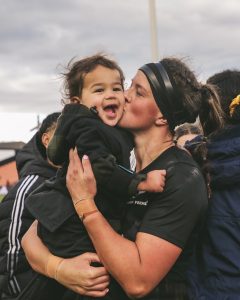 The first myth to debunk is that women in the game aren’t already thinking deeply about the intersection of their sport and their motherhood.
The first myth to debunk is that women in the game aren’t already thinking deeply about the intersection of their sport and their motherhood.
No matter what level they were in the game, family planning for these players factored in their rugby goals and commitments.
Charmine Smith, Black Fern #182, recalls motherhood being openly discussed just once in her earlier career. The team was split into age groups and sitting amongst other players in their late twenties, she was surprised to discover just how front of mind this topic was.
“We all had it on our mind, but we hadn't actually sat down and spoken about it.” remembers Smith.
“We know we're going to have a baby but like, when is the right time or when is too old and how does that fit in with rugby.”
For most, this meant taking advantage of natural breaks in play. Smith became pregnant after what appeared at the time to be a career-ending injury, while others leaned on major life events.
“I got pregnant right on the edge of COVID,” Neariah Persinger-Weathers, USA Rugby 15s and 7s player, recalls.
“There was a lot of uncertainty on where the World Cup was gonna happen, where the Olympics was gonna happen. So everything was really in the air.”
“I was between teams so it seemed like the perfect time.” says rugby club legend and content creator, Sam Lovett.
“It was the same with my second son at 34. I was moving from Germany to Oklahoma. I didn't really have connections to teams yet and I wasn't in the middle of a league or middle of a season or anything, so I chose those times.”
Meanwhile, Les Elder, Black Fern #188, didn’t have quite the same control over the timing of her pregnancy.
“We had been trying for so long, for years, to conceive naturally. So we went onto the IVF list.” explains Elder.
“There's a two year waitlist so I was like, ‘I'll keep playing rugby.’ And then when it was pretty much as soon as I was named (Black Ferns) captain that I got a call to say, ‘Hey, we've bumped up the list.’ So I was kind of like, oh shit, what do you do?”
Elder’s choice was made a little easier when she went down with a MCL tear soon after. Her injury provided an opportunity to step away from the game, affording some privacy while she underwent IVF treatment.
The clarity these players felt on their choice to pursue motherhood wasn’t reflected by clarity in their rugby environments. They described searching for the resources they needed to adjust to life as a pregnant athlete. When they couldn’t find those answers externally, they ultimately ended up relying on their own instincts.
“When you've been an athlete for so long, you know how to listen to your body and you just know what it needs.” explains Persinger-Weathers.
“So that's how I felt out the whole gym situation while I was pregnant. I was like, ‘Okay, this feels good, this still feels fine.’ We're not gonna go heavy, because for what? We're just maintaining at this point.”
These players knew that their situation, while largely undocumented, were not unique. They were motivated to use their experiences to try and inform other rugby Mums that would come through after them.
“I said to New Zealand Rugby, I am not going to be the first professional rugby player that gets pregnant and comes back to playing rugby. Use me as a guinea pig, use me right now while I'm pregnant, use me postpartum.” recalls Elder.
“There was an opportunity there to invest in a resource to study me. And I made myself available for that, because I knew they'd be more. But they didn't. So I reckon it was a wasted opportunity.”
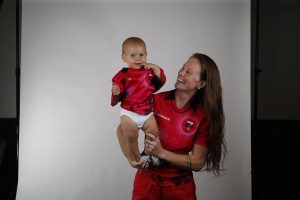 Persinger-Weathers wasted no such time, spending her pregnancy doing her own personal study.
Persinger-Weathers wasted no such time, spending her pregnancy doing her own personal study.
Documenting her process, her workout and diet. Paying close attention to the changes she felt. Postpartum she dedicated herself to do the “actual research” asking the central question “Is this even a thing?”.
It turns out the answer to that is a resounding yes. She connected with a group who offered dedicated pre and post natal coaching courses. She initially engaged to educate herself for her own journey but this quickly transformed into a new career.
“Now my job is running Bump and Beyond, which is a Mom’s fitness group strictly for those that are pregnant, trying to get pregnant or you could be postpartum, no matter how old your kid is.” says Persinger-Weathers.
“It’s given me a whole new purpose, way outside of rugby.”
______________________________
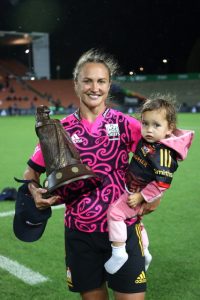 Such a balance was not on offer to Elder. The new Mum and new Black Ferns captain, struggled with the weight of these two roles.
Such a balance was not on offer to Elder. The new Mum and new Black Ferns captain, struggled with the weight of these two roles.
“There was a part there where it was really hard for me, my husband and our marriage. And that was the expectations of rugby.” recalls Elder.
That tension, that feeling, of not wanting to be seen as difficult is what creates a lot of pressure for our rugby mums. Elder describes being overtaken postpartum, by a relentless pursuit of her former self.
“There was a part of me that was like, ‘I'm not gonna let this be a reason not to try and get back into it.’ It's almost like an internal challenge of myself. And looking back on it, I probably did need to protect myself from myself.”
“I would say right now, I hear it in the language of some of the Mums that have come back. And some of the language around ‘I'm back and it's only been six months or whatever.’ You can see that there's some pride there. And 100% they deserve that credit for achieving that but I just hope it's not like from a place of ‘I know that she did it, so I can do it too.’.”
Elder is wary of how a story like hers is being inadvertently creating more pressure on rugby Mums. The Black Fern captain was back on the pitch just three months after giving birth but resents how her experience has been framed in the retelling.
“I'd love to put this headline ‘Les comes back in record time - also drives head on into another car because she's half asleep. Also, her baby rolls off the bed and falls on its head because she's half asleep.’ That's what's actually happened. That's the reality.”
Black Ferns Sevens stalwart and Super Rugby Aupiki champion, Niall Williams-Guthrie, slowly learnt to filter out these stories during her own return to play. Becoming a Mum for the second time just as her sevens career was taking off, she initially got caught up comparing herself to others.
“Social media sometimes can be such a great influence and really inspiring but it can also be really damaging and detrimental to how you see yourself.” Williams-Gurthie explains.
“Seeing these people bouncing back so fast, they're doing so well and you're looking at yourself like why don't I have a six pack? Or why can’t I play three months post baby?”
Smith too, struggled with comparisons alongside health complications postpartum. It took the Black Fern lock two years to return to form, rebuilding her relationship with running which she had once described as “her thing”.
“I had to keep reminding myself that not everyone's the same and that my journey was going to be different.” says Smith. “I was 30 kilos heavier than I am today. And when I say I couldn't even run, that was an understatement. I literally felt like I was running through thick mud like in an estuary.”
“Once I learned to switch off, to take what I needed from social media but also know that my journey was my own. I think that's when I really started to thrive.”
______________________________
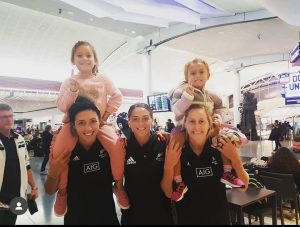 While Smith and Williams-Guthrie learnt to filter out the noise, Lovett believes that there should be a duty of care in what stories we choose to shout about and that an overemphasis on the exceptions is distorting expectations within the game.
While Smith and Williams-Guthrie learnt to filter out the noise, Lovett believes that there should be a duty of care in what stories we choose to shout about and that an overemphasis on the exceptions is distorting expectations within the game.
“Honestly, I think that what we're seeing is unrealistic. It's the minority. I think we can celebrate these achievements and acknowledge the support and hard work that helped from there, but it should never be the expectation.” says Lovett.
“The focus of a quality maternity policy should be on supporting athletes on their respective journeys through pregnancy, the mental health of the athlete and setting realistic goals, using advice from medical professionals. I feel like anything else is doing a disservice to those that perhaps come after them.”
That support was there for Williams-Guthrie, who describes being “really lucky to be in the sevens programme.”
The understanding of then head coach, Allan Bunting, and her teammates, made all the difference to her integration into the side. Little things, like shifting the time of their morning meeting to allow Williams-Guthrie to take part in her childrens drop offs, meant her family started each day off right.
This has been the case for Smith too as now that there is a group of mums in the current Black Fern environment, more initiative is being taken to support them.
Management established a “Black Ferns Baby Mumma” group, that regularly check in a with each other. Her teammates will hold her baby, to give her the chance to eat. And most importantly, they are there to cheer her on.
“I just remember going into my first rugby environment after baby and I felt so self conscious” explains Smith.
“I just remember Aldora Itunu looking at me and being like you're doing so amazing. I will never forget how that made me feel.”
The danger here is that much of their experience is informed by good people, rather than good policy. There is still work to be done to codify these actions across the pipeline so we can have a more universally positive experience for mums in the game.
For example, the current New Zealand Rugby Parental Inclusion Policy is only designed up until a child turns one. This introduces tension for those breastfeeding as they are effectively put on a countdown clock by their employer. Williams-Guthrie believes this policy scope needs to grow alongside these rugby families.
“I think we need to grow as an entity, as New Zealand Rugby, to cater for women who are not just coming back from having kids but for women who have kids in rugby too.” she says.
“It's not like they're born and then a year later when the maternity leave finishes, that you don't have a child anymore. It's just you have different needs to help support yourself being an athlete and a mum.”
______________________________
In reviewing their approach to rugby mums, these players believe it’s on the administrators to kick things off.
“For the people that are running rugby, front load it. Take the awkwardness, take the pressure off the parent and their support system. Put things in place so that they never have to feel like an inconvenience.” asserts Elder.
“And check in. That's rugby isn't it? You do a performance plan, you check up on the player and you set some benchmarks and then you check in how they tracked against those benchmarks. Make them a part of the plan because they are central to that, it should be focused around them and it can’t be generic.”
“For administrators in any organisation, treat each case individually.” agrees Persinger-Weathers. “Yes, there will become common trends and stuff, like once the data gets out there, but take each case individually and have an upfront conversation with the mom.”
“I feel like any mom rugby player who is trying to get out there is not going to withhold information if her body is not ready. Being able to listen and be like, okay, she's not feeling it today, there's no reason to like to push her. Being able to have that conversation and not have her be looked at any other way. Give that grace to the mom.”
“That's even more important because you do have way more mums at the grassroots level than you do at a professional level.” explains Lovett.
“And having the empathy and the understanding of what you're going through. It's far easier to understand an ACL injury than a pregnancy for some people and it's just like not really talked about that much. Everyone needs to know more about it.”
Smith drew further on the ACL analogy, saying there are cues we can take from our return to play for these types of injuries which could help inform players and their teams postpartum.
“Say you've got an ACL, you have to go through strength tests before you can run out and play again and I feel like it should be similar when you have a baby.” explains Smith. “There should be a pelvic floor physio which is funded. You should be able to tick off certain things before you go out and go into that full contact again.”
Williams-Gurthie wants an expansion of support, not just for new Mums but all Mums in the game.
“I get that the first year of their life is very crucial and important but to say that that's the only time that a mum needs help with being mum and an athlete is crazy.” says Williams-Guthrie. “It's a continuous thing and never ends. Never ever not even when they're adults. I know that myself, I’m still seeking help and advice from my parents.”
Speaking to the other Mums in rugby, Persinger-Weathers emphasised the importance of advocating for your needs and reminding them that this is how we make it easier for those that come after us.
“I feel like some people don't want to be that extra burden. But if this organisation is putting time, putting money and putting their resources into this next step of the programme, you need to be honest enough with them because you're not going to be hurting yourself, you'll be hurting the people after you.” says Persinger-Weathers.
______________________________
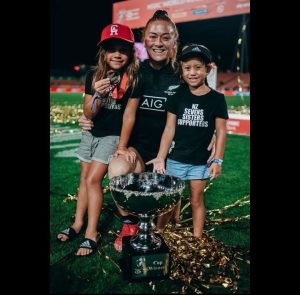 Harm is what Williams-Guthrie wants mums to try and avoid, encouraging them to offload the guilt of remaining committed to your rugby career.
Harm is what Williams-Guthrie wants mums to try and avoid, encouraging them to offload the guilt of remaining committed to your rugby career.
“I always thought that things had to be like a 50/50 split. I had to give half of myself to being a Mum and half to rugby but what I've learned over time is that that's quite impossible.”
“There's times in life you need to be more Mum than rugby and then there’s times when you need to give more to rugby because you might be coming up to a pinnacle event. It's not saying that you love your kids less, it's just you got to invest more energy and if you can find the circles that support that so you don't feel guilty, that’s when I've realised that I started to thrive the most”
Smith knows that whatever may change may still come in the system, she’s creating change by simply stepping out on the field.
“I think the coolest thing about being a Mum in rugby, apart from when you finish a rugby game and being able to run over and get your baby, is them just seeing you out on the field being fearless.” says Smith.
“I feel like it's like they're gonna look back and be like, Man, if my Mum can do that. I can do anything.”
